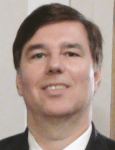Management
Optimizing Performance: Is It Art or Science?
Is helping people perform to their full potential an art or a science? Do the best leaders use their natural-born leadership abilities, or do successful managers have a well-thought-out, scientific plan? Surprisingly, very few leaders have developed a well- thought-out formula for finding, developing, and retaining top performers.Not surprisingly, many of these same leaders say, “most of our employees aren’t top performers, and most don’t care.” Let’s take a closer look and see what’s going on.
The success of an employee is no accident; success is a function of how well a leader understands, teaches, and executes the four roles of leadership: supervisor, coach, trainer, and mentor. But does a good leader just have natural talent, or is he great at creating and following a well-thought-out, repeatable, and therefore scientific plan?
In the supervisor role, the manager has the primary responsibility for monitoring, interpreting, and responding to the day-to-day activities of the employee to keep them individually and collectively working toward individual, departmental, and company goals. The supervisor’s role is to have ‘super’ vision; he or she must know what’s going on and act upon this information.
Identifying the activities that need to be tracked is only half of the performance-monitoring formula. Identifying the amount and frequency of activity is the other half.
The Supervisor
Each employee must be monitored to ensure that he or she is performing the right activity, the right amount and frequency, and at a specified and minimum level of quality. Determining what and how much should be done, evaluating the performance of those tasks, and facilitating changes in performance when necessary are the most essential functions the manager performs. All other management roles — training, coaching, and mentoring — evolve out of this interaction. As you can see, the metrics of what, how much, and at what quality level are all measurable and trainable. Therefore, the supervisory role is definitely science.
The Coach
The coach’s primary role is to be supportive and motivational, focusing on the participant’s application of skills toward maximum performance in the team environment.
Think back to a time when you had a really good coach who helped you perform as an athlete, business leader, speaker or salesperson. Although I think we’d all agree that these memorable coaches are special people, everything they do can be duplicated and learned. Therefore, even this inspirational and seemingly difficult role is based on science.
My guess is that, if you asked great coaches how to develop hyper-performing people and teams, they would give you a well-thought-out formula that they use again and again to turn out consistent winners. The results seem so magical that they appear to be out of our reach as mere mortals — but they’re not.
The Trainer
The role of the trainer is primarily concerned with the development of competence in the trainee. The same argument applies to trainers. Yes, there is a continuum of poor to great trainers, but great training technique can be learned, duplicated, and documented. Therefore it, too, is science.
The Mentor
Finally, the mentor typically socializes the mentee by example into the nuances of the norms and values of both the role and the company. Once again, this is a learnable, repeatable, and therefore scientific role.
It is pretty obvious that the skills necessary to be a good leader can be learned. One doesn’t need to be, and typically isn’t, born with sufficient natural leadership abilities. All these skills can be trained and developed. Therefore, getting the most out of your people has to be mostly science, with a nod to those special, highly gifted and talented coaches, mentors, and trainers we’ve all had the privilege to know. The good news is that leaders can — and must — continuously improve their skills.
Jim Mumm is CEO of Sandler Training, serving Western Mass., as well as an award-winning trainer, author, speaker, and entrepreneur; (646) 330-5217; www.jimmumm.sandler.com






